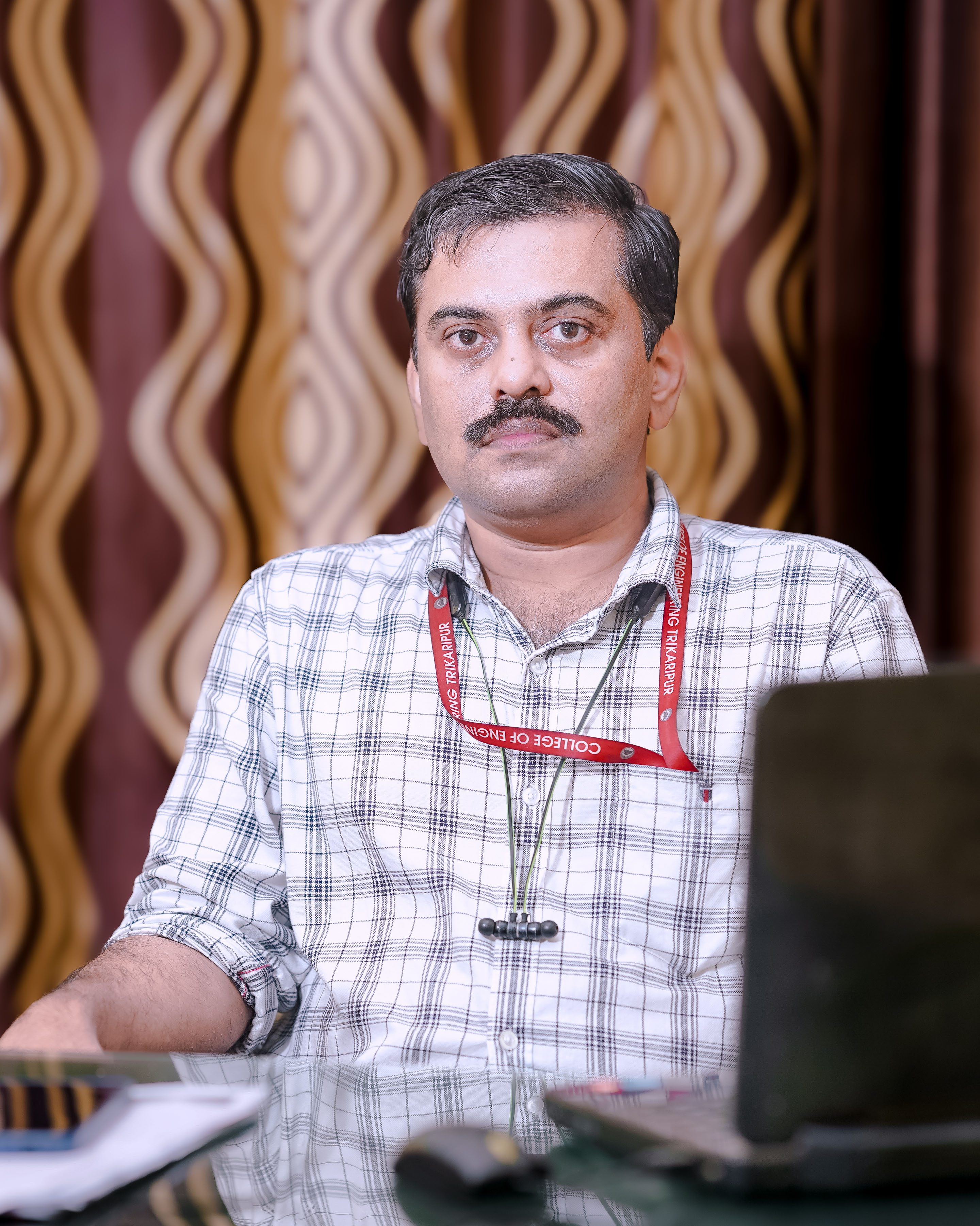College of Engineering Trikaripur Cheemeni P.O, Kasaragod Dist. Kerala - 671313
- Home
- /
- Electrical And Electronics Engineering
Electrical And Electronics Engineering
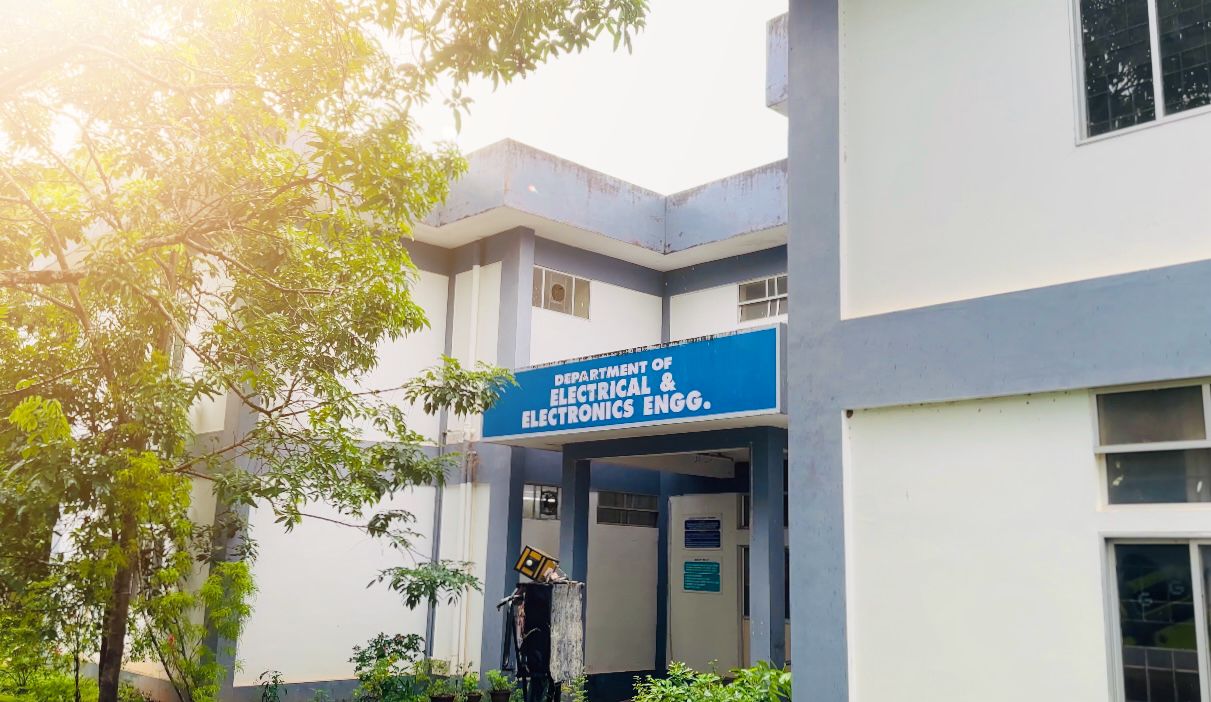
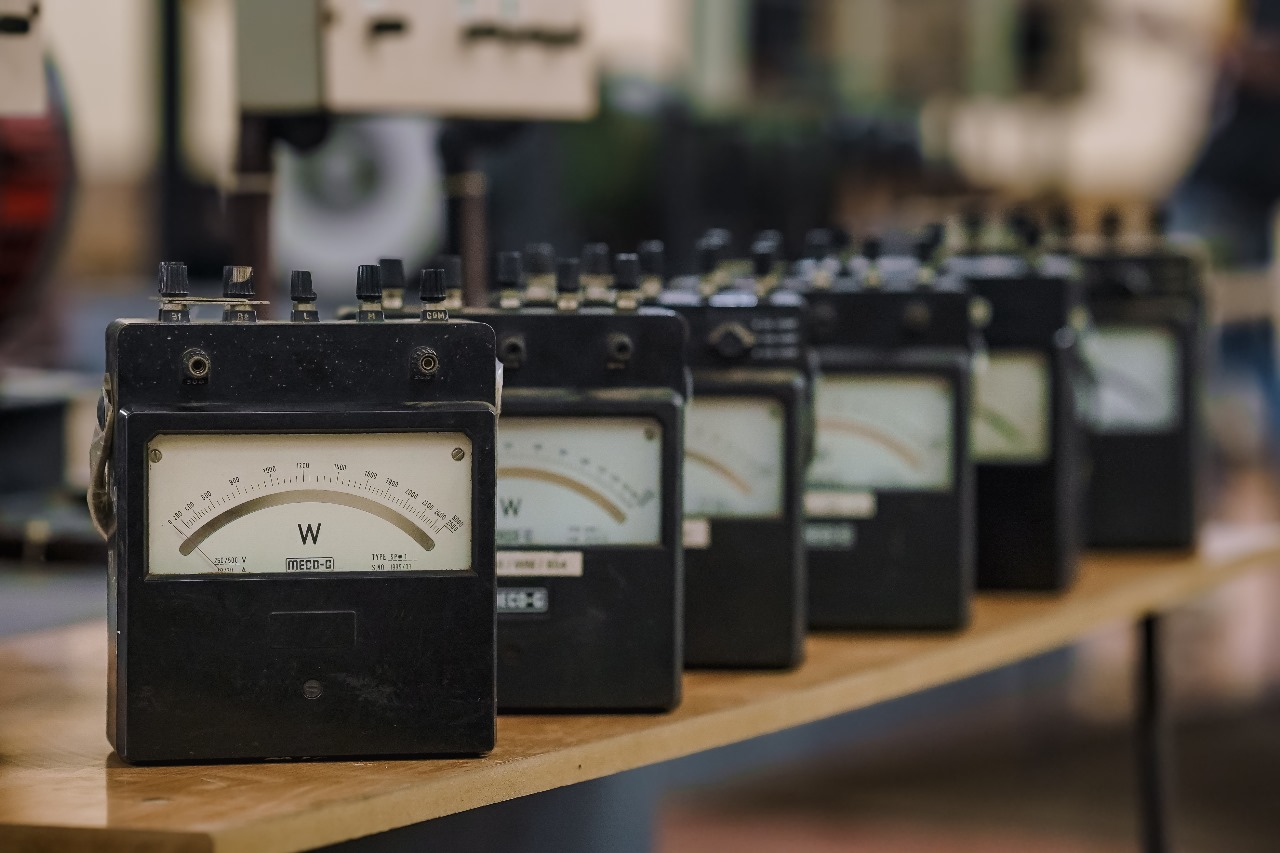
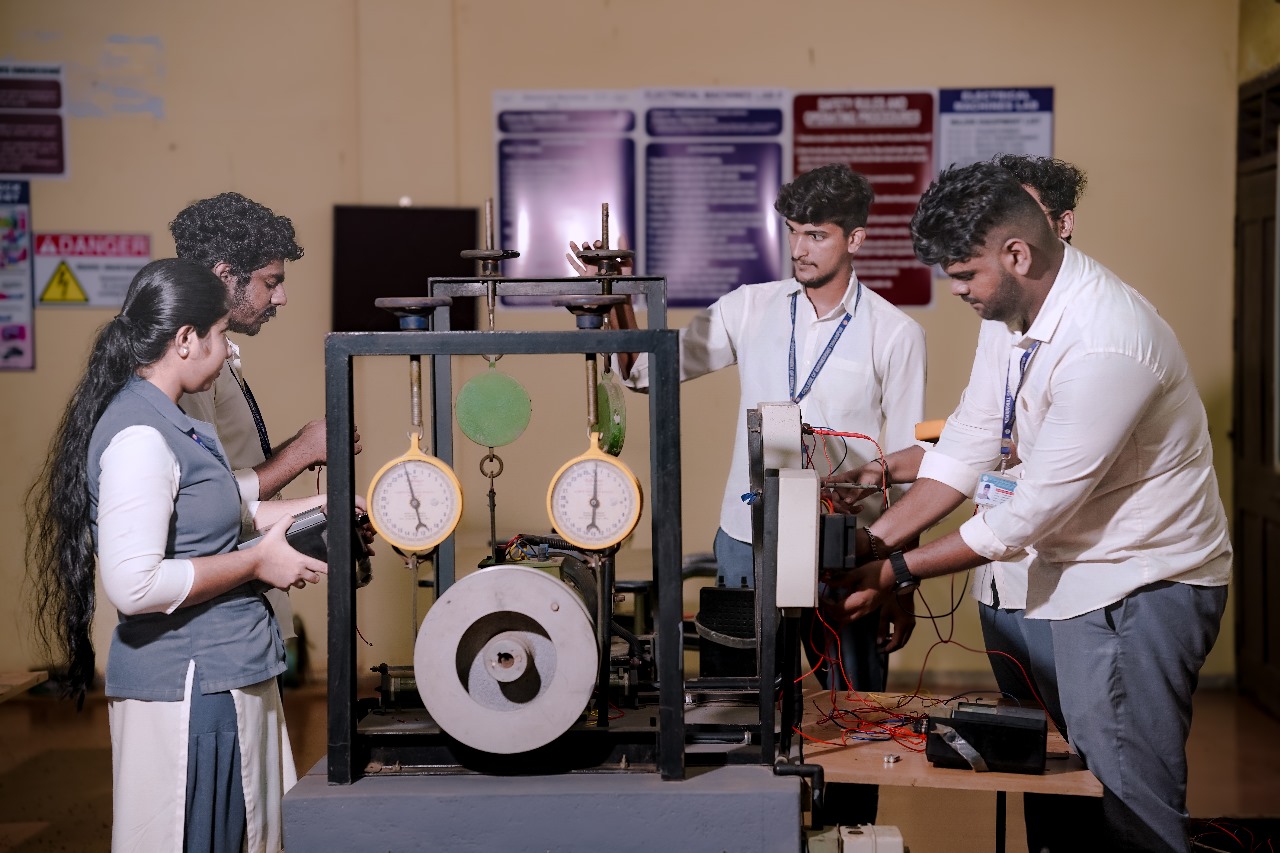
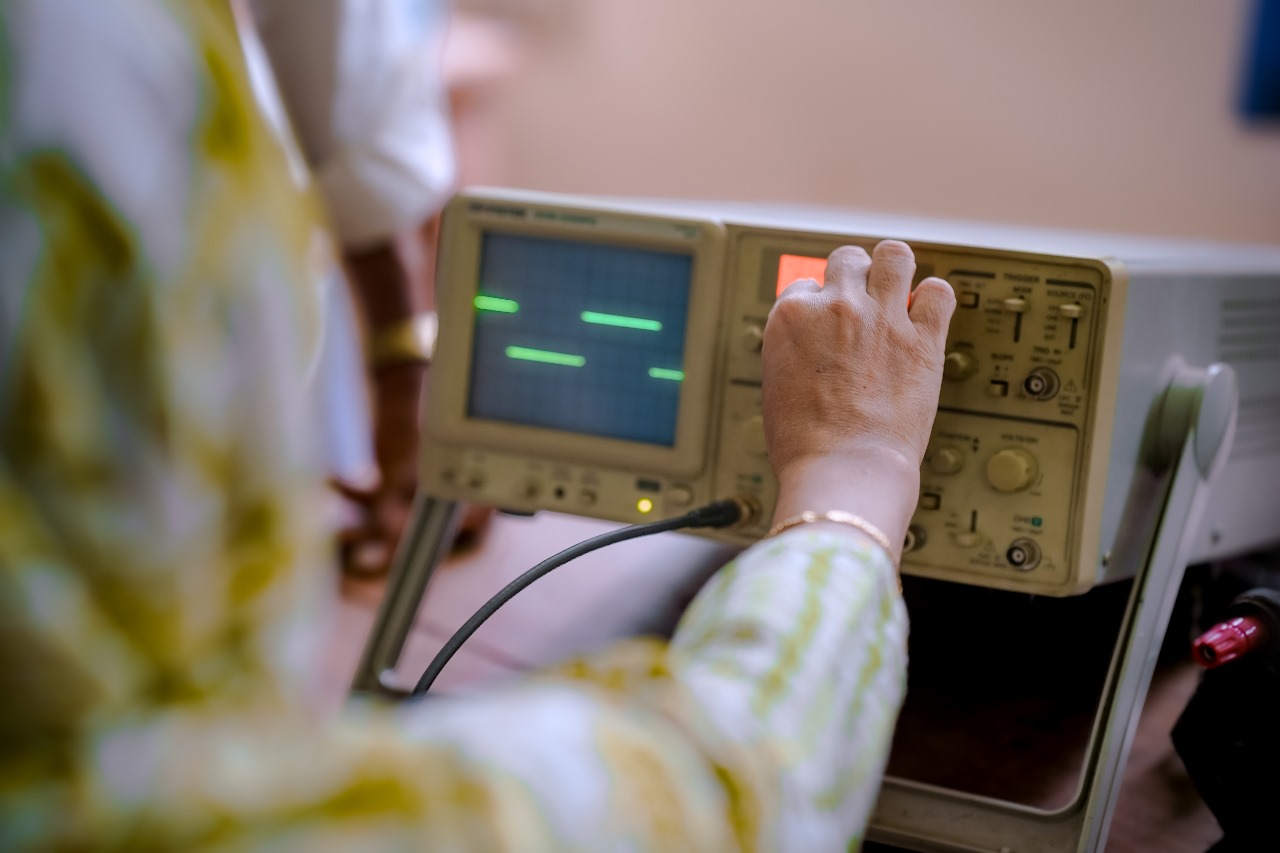
Electrical And Electronics Engineering
TThe Department of Electrical and Electronics Engineering offer B.Tech degree programme affiliated to the APJ Abdul Kalam Technological University(KTU). The department has an annual intake of 63 students. Dept of Electrical moulds perfect power Engineers with the support of well talented and experienced faculty. With the existing facilities including sub station, our students have real world practical experience in electrical equipment and machinery.
B. Tech programme in Electrical and Electronics Engineering is accredited by NBA till 30.06.2025. (Ref:F.No.26-48/2013-NBA, dated 21-12-2022)
Read more >>>>VISION
To be a premier institution in education and research for moulding technically competent and socially committed professionals
Mission
-
Promote interdisciplinary research and innovation so as to meet the current needs of industry and society
-
Attract, nurture and retain the best faculty and technical manpower
-
Provide state of the art facility for quality technical education
-
Develop personality and professional skills of the students through interaction with alumni, academia and industry
- PEOs
- POs
- PSO
Programme Educational Objectives (PEOs)
-
Prepare graduates to have strong practical and theoretical knowledge in Electrical and Electronics Engineering with ability to analyze, design, develop, optimize and implement electrical & electronic systems
-
Produce graduates having wide expertise in electrical & electronics and its related fields contributing to society through interdisciplinary research and innovation
-
To inculcate a professional outlook to graduates and make them communicate effectively and interact responsibly with colleagues, clients, employers and the society
-
Produce graduates motivated for lifelong learning and professional development
-
Produce graduates with communication skills, leadership qualities and a professional outlook
Programme Outcomes (POs)
-
Engineering Knowledge : Apply the knowledge of mathematics, science, engineering fundamentals and Electrical and Electronics engineering to the solution of complex engineering problems.
-
Problem Analysis : Identify, formulate review research literature, and analyze complex engineering problems reaching substantiated conclusions using first principles of mathematics, natural sciences and engineering sciences
-
Design/Development of solutions: Design solutions for complex engineering problems and design system components or processes that meet the specified needs with appropriate consideration for the public health and safety, and the cultural, societal and environmental considerations.
-
Design/Development of solutions: Design solutions for complex engineering problems and design system components or processes that meet the specified needs with appropriate consideration for the public health and safety, and the cultural, societal and environmental considerations.
-
Conduct investigations of complex problems : Use research-based knowledge and research methods including design of experiments, analysis and interpretation of data, and synthesis of the information to provide valid conclusions.
-
Modern tool usage : Create, select, and apply appropriate techniques, resources and modern engineering and IT tools including prediction and modeling to complex engineering activities with an understanding of the limitations.
-
Environmental and sustainability: Understand the impact of the professional engineering solutions in societal and environmental contexts, and demonstrate the knowledge of, and need for sustainable development.
-
The Engineer and Society : Apply reasoning informed by the contextual knowledge to assess societal, health, safety, legal and cultural issues and the consequent responsibilities relevant to the professional engineering practice
-
Environmental and sustainability: Understand the impact of the professional engineering solutions in societal and environmental contexts, and demonstrate the knowledge of, and need for sustainable development.
-
Ethics : Apply ethical principles and commit to professional ethics and responsibilities and norms of the engineering practice.
-
Individual and Team work : Function effectively as an individual, and as a member or leader in diverse teams and in multi-disciplinary settings.
-
Communication : Communicate effectively on complex engineering activities with the engineering community and with society at large, such as, being able to comprehend and write effective reports and design documentation, make effective presentation, and give and receive clear instruction
-
Project management and finance : Demonstrate knowledge and undertaking of engineering and management principles and apply these to one's own work, as a member and leader in a team, to manage projects in multi-disciplinary environments
-
Life-long learning : Recognize the need for, and have the preparation and ability to engage in independent and life-long learning in the broadest context of technological change
PROGRAM SPECIFIC OUTCOMES (PSO)
At the end of the course the graduates are able to
-
Analyze the performance and design electric power systems, along with its machine components, and control circuitry according to the desired specifications
-
Apply theoretical concepts and practical skills in providing Electrical and/or Electronic engineering solutions with a view of energy conservation and sustainability
-
Power Electronics Lab
-
Electrical Workshop
-
Electrical Machine Lab
-
Circuits & Measurements lab
-
Advanced Electrical Engineering Lab
-
Basic Electronics Lab
-
Electronics circuit lab
-
Digital Electronics Lab
-
Microprocessor and Microcontroller Lab
Association Activities
Students are given exposure to industries by industrial visits and industrial training session. Association also organize lectures, seminars and technical talks by distinguished personalities. It also hosts workshops, exhibitions and competitions like instant logic quiz, paper presentation, code debugging and many more
